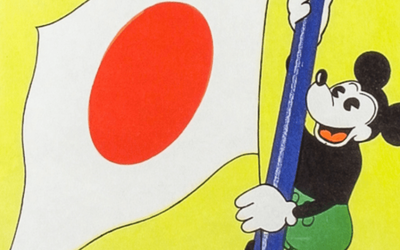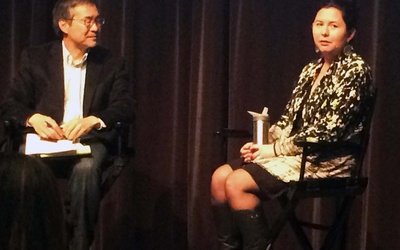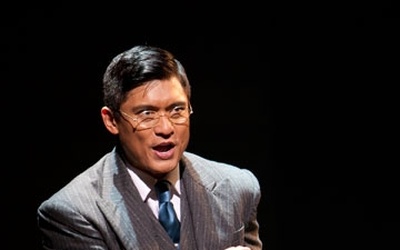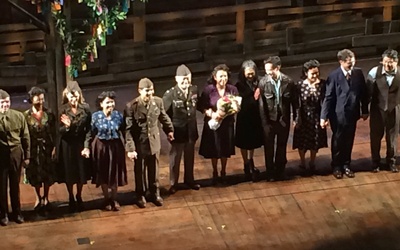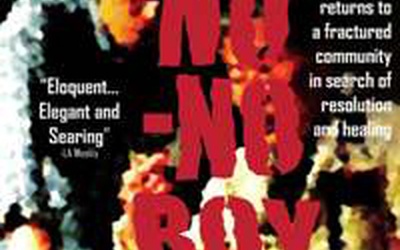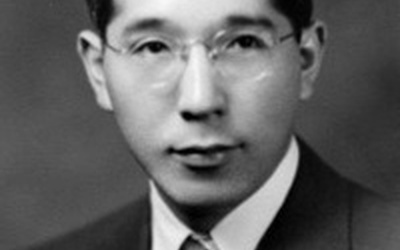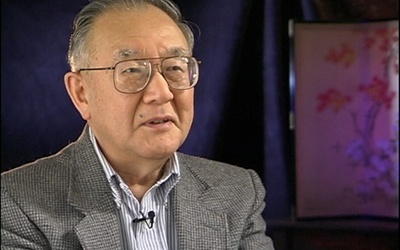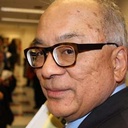
Frank Abe
Frank Abe is producer/director of the award-winning PBS documentary, CONSCIENCE AND THE CONSTITUTION. He helped produce the two original “Day of Remembrance” media events in Seattle and Portland that publicly dramatized the campaign for redress. He was a founding member of the Asian American Theater Workshop in San Francisco and of the Asian American Journalists Association in Seattle, and was featured as a JACL-like camp leader in the NBC/Universal movie, FAREWELL TO MANZANAR. He was an award-winning reporter for KIRO Newsradio, the CBS Radio affiliate in Seattle, and is currently Director of Communications for the King County Executive in Seattle.
Updated April 2015
Stories from This Author
Interview With Thomas Girst On New German Translation Of "No-No Boy"
July 12, 2019 • Frank Abe
Congratulations to author and cultural manager Thomas Girst for providing the literary and historical commentary appended to the new German translation of John Okada’s No-No Boy. Girst is the author of the 2015 academic study, Art, Literature, and the Japanese American Internment: On John Okada’s “No-No Boy,” and he reveres Okada’s work as much as anyone. Girst’s fine epilogue provides the context of the WW2 incarceration experience for the German reader, and a close reading of Okada’s text. The new …
“Resistance Capital”: Writing in the Camps as an Act of Defiance
June 9, 2016 • Frank Abe
I want to thank the author of this study for putting a name to the sense of purpose I felt in writing an essay for the old Northwest Nikkei in 1992, on my feelings upon first reading the manifestos of the Heart Mountain Fair Play Committee. What I was obeying, she says in citing that piece, was my “inheritance of resistance capital”—the idea that writing by Japanese American camp resisters in 1944 created a kind of currency that can be …
Now Appearing Nightly; Mike Masaoka!
Nov. 23, 2015 • Frank Abe
The problem with the new Broadway musical Allegiance is not just its historical inaccuracies, although it is riddled with them. It’s the fabrication of events that were impossible within the reality of America’s concentration camps. Unexpectedly, the one reality this show gets right is its portrayal of Mike Masaoka and the wartime Japanese American Citizens League — although making him the villain of the piece diverts attention from other, more uncomfortable truths. Some background: In its tryout at San Diego’s …
Allegiance Uplifts by Doctoring Japanese American History
Nov. 3, 2015 • Frank Abe
SPOILER ALERT: This theater preview reveals an absurd central plot point. The implied pact the musical Allegiance makes with its audience is that you will see an honest retelling of the Japanese American incarceration, and come away feeling comfortably uplifted. The show does entertain, through derivative songs and animated production. It achieves its effect, however, by sacrificing truth for theatricality, revising history, and offering a ludicrous portrayal of the Heart Mountain resisters. As producer/director of the 2000 PBS film, Conscience and the Constitution – which first …
How Happy Ending In Staged “No-No Boy” Bowdlerizes Okada’s Novel
July 22, 2015 • Frank Abe
Successfully adapting any work to the stage presents a challenge. The fact that it isn’t easy doesn’t justify violating the author’s intent. In response to our commentary about the slapping of a happy ending on the staged version of No-No Boy that is still being pitched for a national tour by the Pan Asian Repertory Theater of New York, dramatist Ken Narasaki acknowledges in a recent Discover Nikkei article that he couldn’t find a way to make the original ending work onstage. …
Discovering My Father Was a No-No Boy
June 18, 2015 • Frank Abe
This is the story of a rank-and-file supporter of the Heart Mountain Fair Play Committee, one of the many never named who chipped in two hard-earned 1944 dollars to the defense fund for the young draft resisters. His name was George Yoshisuke Abe, and yes, he was my father. Dad died in his sleep on April 1, his last laugh on all of us. He was 91. In preparing for his service, I revisited a chronology he wrote some years …
Henry Miyatake: Seattle Redress Visionary
May 8, 2015 • Frank Abe
Within JACL circles, its Seattle chapter has always been known, with either admiration or disdain, as “the maverick chapter.” For that, they can thank Henry Miyatake. Henry was the troublemaker Japanese America needed. Without his persistent vision of petitioning for redress of grievances, the government would never have rescinded Executive Order 9066 in 1976, Seattle would have never organized the nation’s first Day of Remembrance in 1978, and the campaign for redress for the World War II incarceration might never …
Stage Adaptation Of “No-No Boy” Violates John Okada’s Novel
April 29, 2015 • Frank Abe
A headline first written by Frank Chin in 2010, “Don’t F**k With No-No Boy,” captures the insistence with which audiences should reject the recent stage adaptation of John Okada’s landmark novel No-No Boy. A New York theater company is now pitching a national tour with stops in the Midwest and West Coast, of an adaptation of No-No Boy that violates the art of John Okada by tacking on an artificially happy ending to his story. After more than 100,000 copies …

